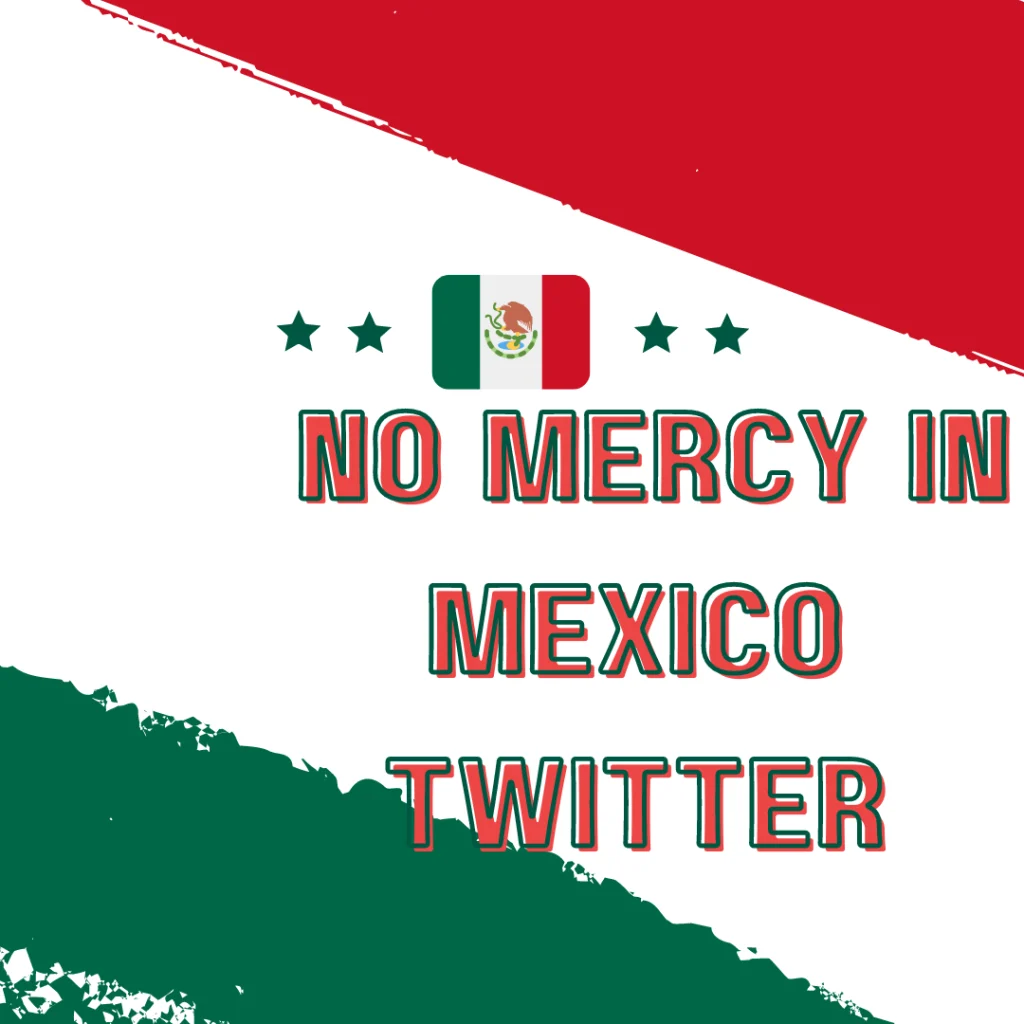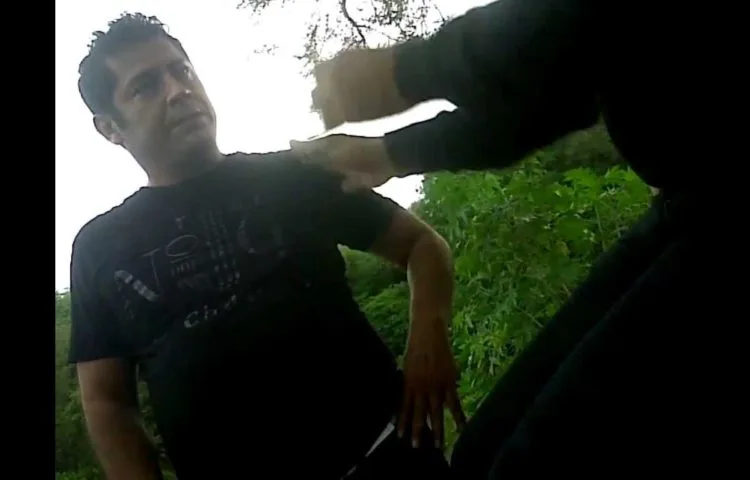In the digital age, social media platforms have become powerful tools for disseminating information, sparking conversations, and catalyzing social change. “No Mercy in Mexico,” a documentary film directed by Charlie Minn, sheds light on the horrors of Mexico’s drug war. However, beyond traditional media channels, Twitter has emerged as a crucial platform for amplifying the film’s message, fostering engagement, and mobilizing support. This article explores the impact of Twitter on the dissemination and reception of “No Mercy in Mexico,” examining its role in shaping public discourse and raising awareness about the drug war’s human cost.

Twitter as a Catalyst for Conversation: Twitter serves as a dynamic forum for public discourse, enabling users to share opinions, engage in debates, and exchange information in real-time. The release of “No Mercy in Mexico video” sparked widespread discussion on Twitter, with users expressing shock, outrage, and solidarity in response to the film’s depiction of cartel violence and government corruption. Hashtags such as #NoMercyInMexico and #DrugWar garnered thousands of tweets, amplifying the documentary’s reach and prompting further dialogue about the urgent need for action.
Social media has become an integral aspect of modern life, serving as a platform for connection, expression, and information dissemination. However, it occasionally exposes users to disturbing content, such as the “No Mercy in Mexico reddit” Twitter video. This viral video, which emerged in late 2021, depicts a group of individuals torturing and ultimately killing a woman in a rural area of Mexico. Its graphic nature shocked and horrified viewers globally, igniting discussions on violence, crime, and justice.
The impact of the “No Mercy in Mexico” Twitter video has been profound. Many viewers found themselves deeply affected by its violent and graphic content, grappling with the trauma induced by witnessing such brutality. Moreover, the video prompted crucial conversations about the prevalence of crime and violence, particularly in regions like Mexico, where impunity often reigns supreme. It underscored the urgent need for systemic reforms and societal changes to address underlying issues contributing to such atrocities.
One significant lesson from the “No Mercy in Mexico reddit” Twitter video is the persistent and pervasive problem of violence against women. The video serves as a stark reminder of the staggering rates of physical and sexual violence experienced by women worldwide, with Mexico facing particularly acute challenges in this regard. Femicide and gender-based violence remain prevalent issues, highlighting the urgent need for targeted interventions and systemic changes to protect women and ensure their safety.
Furthermore, the video underscores the challenges posed by impunity and corruption within Mexico’s criminal justice system. The apparent lack of accountability for the perpetrators depicted in the video reflects broader systemic failures and shortcomings. Without meaningful reforms and efforts to combat corruption, victims of violence and abuse are unlikely to receive the justice they deserve, perpetuating cycles of impunity and victimization.
Despite the distressing nature of the “No Mercy in Mexico youtube” video, it also exemplifies the potential of social media as a catalyst for positive change. The widespread sharing and discussion of the video have helped raise awareness about violence against women and the need for reform in Mexico. By amplifying voices and mobilizing support, social media platforms can exert pressure on authorities to take action and address systemic issues contributing to violence and injustice.
In conclusion, while the “No Mercy in Mexico victims” video exposes viewers to disturbing realities, it also serves as a catalyst for critical conversations and advocacy efforts. By confronting uncomfortable truths and demanding accountability, we can work towards a future where violence against women is eradicated, justice is served, and systemic reforms create safer and more equitable societies.
Fostering Engagement and Awareness: Twitter has played a crucial role in fostering engagement and awareness around “No Mercy in Mexico” by providing a platform for filmmakers, activists, and advocates to share updates, behind-the-scenes footage, and resources related to the documentary. Through tweets, retweets, and direct interactions with followers, the filmmakers have been able to directly engage with audiences, answer questions, and provide context about the issues explored in the film. This direct engagement has not only deepened viewers’ understanding of the drug war but also encouraged them to take action and support initiatives aimed at addressing its root causes.
Amplifying Voices of the Affected: One of the most powerful aspects of Twitter is its ability to amplify the voices of those directly affected by the issues portrayed in “No Mercy in Mexico.” Survivors of cartel violence, family members of victims, and activists working on the front lines of the drug war have used Twitter to share their stories, advocate for justice, and demand accountability from authorities. By centering these voices in the conversation, Twitter has helped humanize the impact of the drug war and underscored the urgency of finding solutions to end the cycle of violence and impunity.
No Mercy in Mexico Video Twitter
Challenges and Ethical Considerations: While Twitter has served as a valuable platform for raising awareness about “No Mercy in Mexico,” it also presents challenges and ethical considerations. The rapid spread of information on Twitter can sometimes lead to misinformation, sensationalism, and the spread of graphic content without proper context or sensitivity to the experiences of those affected. Moreover, the anonymity and accessibility of Twitter can make it a breeding ground for trolls, harassment, and abuse, posing risks to filmmakers, activists, and individuals sharing their stories.
A recent study suggests that Elon Musk’s reduced oversight on Twitter has facilitated Mexican cartel members in flaunting their lifestyles, sharing violent content, and recruiting new members on the platform. The report, conducted by the Alliance to Counter Crime Online (ACCO), reveals that several previously banned accounts of known cartel members have resurfaced and are actively operating on Musk’s Twitter.
No Mercy in Mexico Twitter Father and Son
Cartel members often use Twitter to showcase their criminal activities, boasting about being wanted by law enforcement agencies like the FBI while glamorizing their “gangster lifestyle.” Additionally, high-profile cartel figures utilize the platform for recruitment purposes and to disseminate violent videos. Retired ICE Special Agent Victor Avila highlights that some accounts even send threats to government officials, civilians, and rival gang members, instilling fear and intimidation among viewers.
The glorification of cartel life on social media contributes to its allure, particularly among younger generations. Avila explains that social media amplifies their celebrity status, portraying the cartel lifestyle as one filled with wealth, luxury, and excess. This idolization of cartel culture can entice individuals, drawing them into a dangerous and criminal world.
While Twitter has policies in place to curb the promotion of violent organizations and illegal activities, such as the “Violent and Hateful Entities” policy, the ACCO report suggests that these policies are inconsistently enforced. This lack of uniform enforcement allows cartel members to continue operating on the platform with impunity, perpetuating the cycle of violence and criminality online.
According to a recent report, cartel activity on Twitter is pervasive and easily accessible, with narco accounts openly available to the public and easily discoverable through simple searches. The dismantling of Twitter’s safety team exacerbated the platform’s already minimal efforts to remove violating content and block accounts associated with Mexican cartels. This lax enforcement has allowed cartel members to maintain a presence on Twitter, despite the platform’s policies against promoting illegal activities.
Beyond Twitter, cartels have expanded their online presence to other social media platforms like Snapchat and TikTok, where they promote their criminal lifestyle. Some criminal organizations even use platforms such as Facebook and Instagram for recruiting individuals for illicit activities like human smuggling. This trend has spread to other criminal groups across Latin America, creating a challenge for tech companies attempting to mitigate their presence online.
Tech companies often find themselves engaged in a game of Whack-a-Mole, attempting to shut down cartel accounts as quickly as they emerge. While Meta, which owns Facebook and Instagram, claims to work with law enforcement to remove content related to cross-border smuggling, Twitter’s response to cartel activity has been criticized for its lack of action.
The Alliance to Counter Crime Online (ACCO) has called on Elon Musk, who has significant influence over Twitter, to suspend publicly accessible accounts associated with cartel members. The report emphasizes that violent criminal organizations should not be allowed to use social media platforms to broadcast their violence and issue threats. However, attempts to reach Twitter for comment on these issues were unsuccessful.
No Mercy in Mexico Twitter Gore
On Capitol Hill, Arizona Senator Krysten Sinema has reintroduced a bill aimed at combating cartels’ use of social media. The Combating Cartels on Social Media Act would require the Department of Homeland Security to analyze cartels’ social media activity and create a pathway for technology companies to report cartel recruitment efforts to the government.
Overall, the report underscores the need for increased efforts to address cartel activity on social media platforms and highlights the role of policymakers and tech companies in combatting this issue.
Conclusion: In the digital age, Twitter has emerged as a powerful ally in the fight against injustice, amplifying the voices of marginalized communities, fostering engagement, and raising awareness about critical issues such as the drug war depicted in “No Mercy in Mexico.” By leveraging the platform’s reach and immediacy, filmmakers, activists, and advocates have been able to spark meaningful conversations, mobilize support, and demand accountability from those in power. As we navigate the complexities of social media activism, may we continue to harness the power of Twitter for positive change and to amplify the voices of those striving for justice and accountability in Mexico and beyond.
FAQs
Who are the perpetrators in the video?
The identities of the men in the video are not known, but it is believed that they are members of a criminal gang.
Has anyone been arrested for the crime?
It is unclear whether anyone has been arrested in connection with the crime.
What is being done to address violence against women in Mexico?
There are many organisations and advocates working to address.
About The Author

